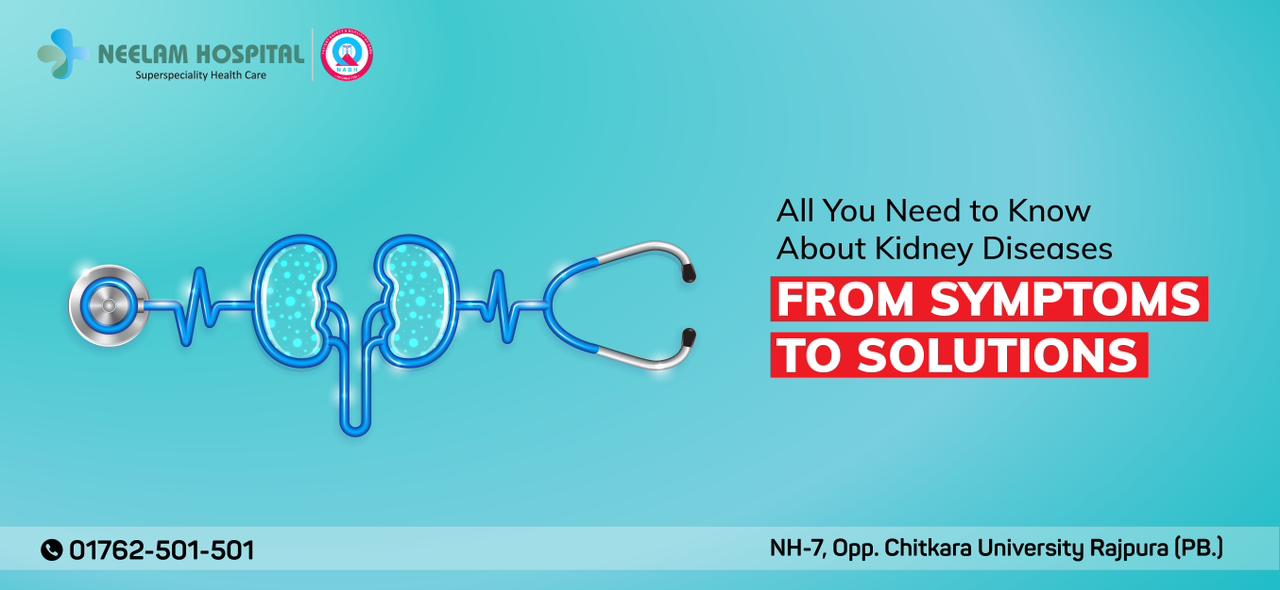
Taking good care of our kidneys is essential for a healthy and vibrant life. Kidneys are one of the most vital organs of the human body that remove waste and excess fluids from our blood. They are important to regulate blood pressure and produce hormones that support various bodily functions. Keeping your kidneys healthy is super important because if they can’t clean your blood properly, it can lead to some serious issues. These problems can either be too small or extremely serious that you need to find the best Kidney Transplant Hospital to get the appropriate treatment.
Being aware of common kidney diseases is crucial because catching their symptoms early on can make a huge difference. Early recognition means early action, avoiding the need to go to the Best Hospitals for Kidney Transplant. Preventing things is the best way to avoid unwanted expenses and stay away from the unfamiliar atmosphere of hospitals. If you’re enthusiastic to know about different kidney diseases, this article has specifically been curated for you. Here, we will discuss several types of kidney diseases, each with its own causes, symptoms, and treatments.
Referred to as CKD, it’s a long-term condition characterized by the gradual loss of kidney function over time. When our kidneys are damaged due to various reasons, they may not function properly, leading to Chronic Kidney Disease.
Major Causes
CKD disrupts kidneys due to high blood sugar levels, inflammation of the kidney’s filtering units, inherited disorders, severe or recurrent kidney infections, and different conditions that affect the flow of urine.
Common Symptoms
Fatigue, nausea, vomiting, loss of appetite, shortness of breath, itching, changes in urine output and appearance, swelling, high blood pressure, etc.
Treatments
AKF is a sudden and rapid decline in kidney function. This condition can occur over a few hours to a few days. The critical condition affects the ability of kidneys to effectively filter and remove waste products from the blood.
Major Causes
Conditions such as low blood pressure, heart failure etc. AKF can also be caused by the intake of certain medications, and toxins or due to blockages in the urinary tract.
Common Symptoms
One of the early signs of AKI is a reduction in the amount of urine produced. Be alert when you notice swelling in your legs, ankles or face, and shortness of breath can also be a sign of AKF.
Treatments
Treating the primary cause of AKI is a simple thing you can do. Manage infections and adjust your current medication. Ensure adequate hydration and manage electrolyte imbalances. For continuous monitoring of kidney function and addressing any complications, get accurate advice from renowned nephrologists.
PKD is a genetic disorder characterized by the formation of fluid-filled cysts in the kidneys. PKDs are of two types, i.e. Autosomal Dominant Polycystic Kidney Disease (ADPKD) and Autosomal Recessive Polycystic Kidney Disease (ARPKD). Where ADPKD is the most common kidney order and it usually manifests in adults, ARPKD is typically diagnosed in infancy and childhood.
Major Causes
Treatments
Applying habits that promote healthy lifestyle, a low-sodium diet and taking certain prescribed medications can help control its early stage, but for advanced cases, kidney transplant should be considered by heading towards the Best Kidney Transplant Hospitals only.
Kidney stones, also known as renal calculi, are hard deposits made of minerals and salts that form within the kidneys. They can vary in shape and size and may cause significant pain as they pass through the urinary tract.
Major Causes
Dehydration, high intake of diets like spinach, nuts etc., excessive consumption of animal proteins, a family history of kidney stones, enlarged prostrates etc.
Treatments
It’s important to recognize symptoms to detect a kidney disease at its early stage. A slight awareness can bring several benefits related to your overall health and can also avoid severe complications, pain and expenses. If you suspect any kidney-related issues, always consult a recognized, well-qualified medical professional, including renowned nephrologists. The best way to find them is to pick the Best Hospitals for Kidney Transplant. They stay ahead of the curve by adopting cutting-edge and advanced medical facilities and practices to provide you with the best kidney treatment with a blend of incredible nursing and utmost satisfaction.
Copyright © 2024 Neelam Hospital. Powered by 7Star MedTech